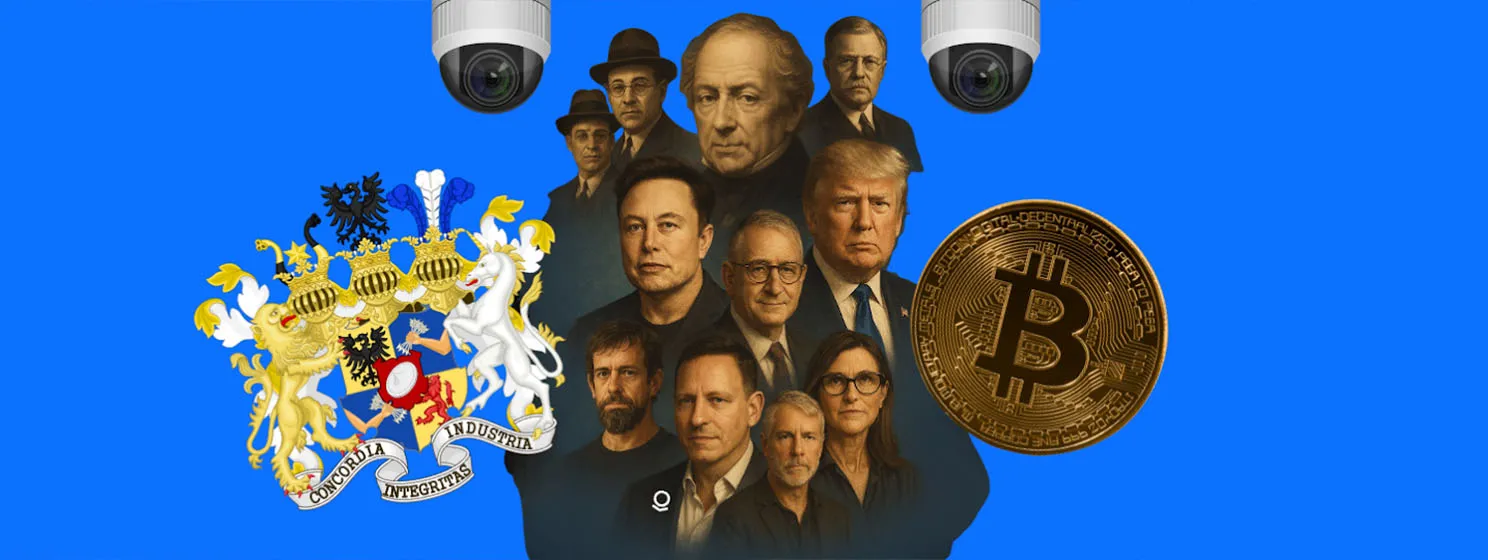|
Getting your Trinity Audio player ready...
|
I’ve intended to bring this topic up for some time now… mostly driven by the fact that a large part of the so called “crypto” world is so against patenting, that it is often to their own detriment. Roger Ver’s recent tweet concerning patents was the kicker…
Preparing to sue everyone over patents is the exact definition of crony capitalism and one of the major reasons I want nothing to do with Craig, Calvin or #BitcoinSV pic.twitter.com/BDpMXDXM6S
— Roger Ver (@rogerkver) February 2, 2020
I was in truth a little bothered by the comment… For reasons I’d rather not get into here, but it did revolve around the involvement of BSV into this whole thing. If nChain moved their entire portfolio of patents to another cryptocurrency (hypothetically), will it make Roger drop that crypto like a hot potato too? But anyway, I digress
Roger has been consistent in his views concerning patents, and this is not the first tweet of this nature. His view reflects a widely held belief in the crypto/anarcho world where many object to state enforced legislations against the non-violent free will of individuals.
To summarise: Patents are a form of intellectual property, often abbreviated to IP, where one’s invention is protected legally from being copied, used, sold and so on, by other individuals and/or entities. The enforced rights to patents last a number of years. The argument for such patents is that they protect inventor’s intellectual property and promote an air of competition to drive new inventions, new ways of doing things, and offer incentives for coming up with new ways of doing things. The arguments against patents generally revolve around the view that intellectual property amounts to a claim over something that fundamentally should not be owned. Contrary to the above, there arguments that state that patents in fact slow things down, and bring into question practices of patent trolling, and the costs of litigations.
This piece does not delve into the moral fibre of the patenting practice, but rather, how damaging it can be, in today’s society, to reject patents altogether.
There are some things in the business world, irrespective of whether we agree with them or not, we are forced to play the game. Is the need to survive in the business world greater than ones ultimate moral code? Is there sway in this area? The real answer is, that it isn’t black and white, and nor should it be.
I will begin by saying this: For Bitcoin to survive long term, the only way it can do it, is to take on the might of big banks, and established technology companies such as IBM and Google, head-on. When you compete in business, your competitor does not share your moral code, irrespective of how highly you hold the mantra. The last year in particular has been an incredible eye opener. We have witnessed Facebook attempt to launch its own cryptocurrency, borrowing many ideas from Bitcoin in the process, Google is looking into doing the same… we’ve seen China working its way at launching its own national crypto-currency, and many other countries are in the process following suit, and of course, we have banks such as JPMorgan creating their own digital assets now also… Pandora’s box has opened and companies across the globe are racing to the finish line…
These major banks and companies are actively patenting large swathes of filings. To put into perspective, MasterCard has filed over 200 blockchain related patents alone, IBM has a similar number, Bank of America, also at approximately 100. Leading the entire pack however is nChain.
At the time of writing we have almost 10,000 blockchain related patent applications made in all. For a technology that is considered relatively new still, these numbers are staggering.
There was one particular patent a couple of years ago now, where nChain beat MasterCard on a submission by a matter of days. This is the competitive environment and the landscape of war that is being waged right now. When a matter of days can dictate the difference between you having legal rights to your invention, or being outright denied.
nChain, touting itself as the leader in blockchain research, is backing up its claim with the largest portfolio of blockchain patents. These patents, although some are designed to be profitable for nChain, many are designed to protect inventions specifically designed for the benefit of Bitcoin SV. That’s right, Bitcoin SV is protected by the largest tech specific patent portfolio out there.
To put it simply however, nChain would not survive a chance in a world without legal rights over its IP, where its giant competitors are flexing their muscle in this landscape. It’s business model depends on its IP.
The real world is often different from the idealistic world that many wish to see. But if we really open our eyes just a little, we begin to notice that even companies that are in this so called ‘crypto’ world already happen to have their own patents. This includes mining giant Bitmain themselves, Coinbase, tZERO, Coinplug, and many others.
In a recent online debate, I was met with responses of “Just because xyz does it, doesn’t make it right”. Unfortunately, the real world, where patents do exist, holds the keys to the competition. Social structures are seldom what you or I wish them to be… But we nonetheless adhere and play by the rules. Take for example, the often phrased line “Taxation is theft” uttered by anarchists. Irrespective of one’s political standing in the spectrum, my bet, is the vast majority are paying their taxes. Irrespective of their moral views, these businesses pay up.
“Oh but that’s at the threat of being locked up!”… sure… and the threat of being made bankrupt is different? Someone who is anti-taxman doesn’t fight taxes by refusing to participate in paying taxes… Being a company with IP that refuses to patent is a little like being a sheep among wolves. Competition is merciless, and your enemy does not share your moral ground.

 07-19-2025
07-19-2025 





